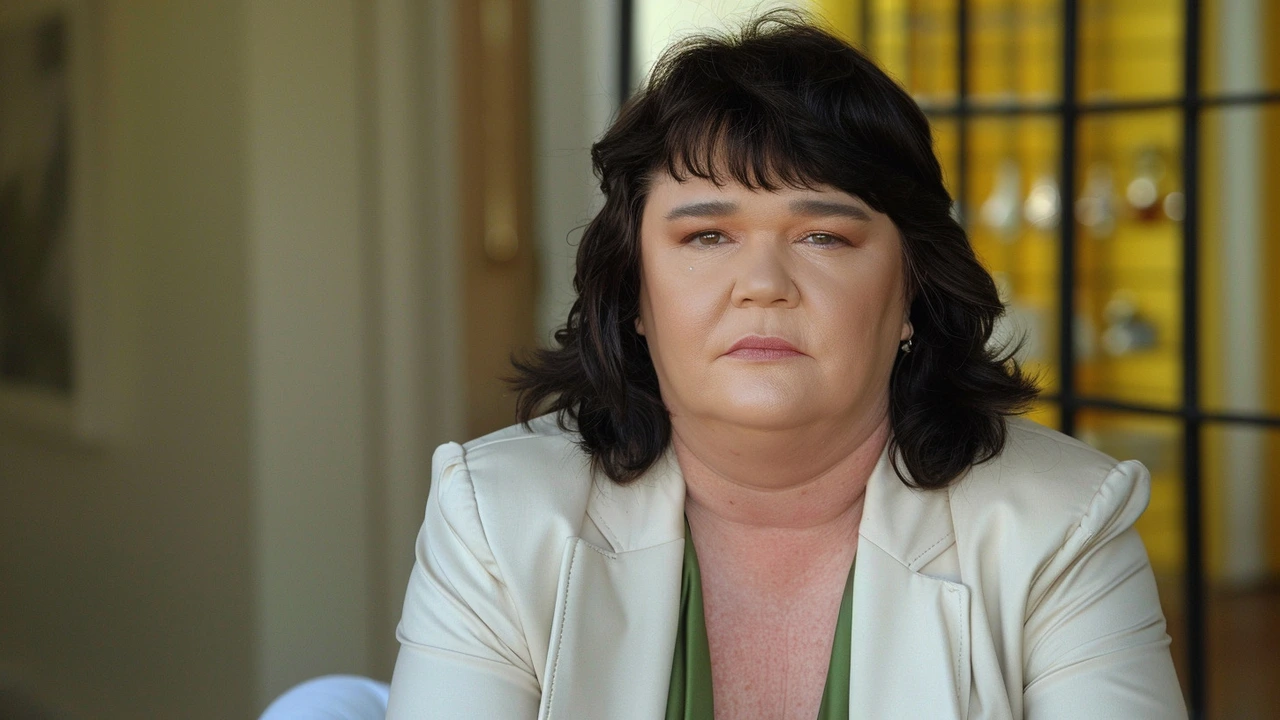The Controversy Surrounding 'Baby Reindeer' and Fiona Harvey's Story
In an explosive interview with renowned journalist Piers Morgan, Fiona Harvey, a 58-year-old woman, has come forward to clarify her side of a story that has captured the attention of millions worldwide. Harvey claims to be the real-life inspiration behind the character Martha, portrayed as a stalker in the Netflix psychological drama 'Baby Reindeer.' The show, which has garnered both critical acclaim and controversy, is based on the purported real-life experiences of comedian Richard Gadd. Gadd has defended the authenticity of the storyline, asserting its emotional truthfulness. However, Harvey contests this narrative vigorously, describing her portrayal as grossly exaggerated and misleading.
Harvey's Claims and the Alleged Harassment
During the interview, Harvey expressed distress over the severe repercussions she faced following the series' release. According to her, the depiction in 'Baby Reindeer' led to a disturbing wave of online harassment and even death threats. Harvey admitted to having sent what she termed 'jokey banter emails' along with a singular letter to Gadd, but she vehemently denied the extent of the communication alleged in the series. 'Baby Reindeer' suggests she had sent an overwhelming 41,000 emails, 350 voice messages, 744 tweets, and 166 letters, figures that Harvey insists are fabricated.
Legal Recourse and Public Reaction
Feeling aggrieved by what she deems a defamatory portrayal, Harvey is contemplating legal action against several parties involved, including Richard Gadd, Netflix, and the Daily Mail, which reported extensively on the show's plot and her alleged role in Gadd's life. The legal implications of such a case highlight the complex interplay between artistic freedom and the rights of individuals portrayed in based-on-true-story narratives. This situation raises significant ethical questions about the responsibilities of creators and the media in handling stories involving real people.
Media Portrayal and Personal Stories in the Limelight
The fallout from 'Baby Reindeer's portrayal of Harvey points to the broader issues concerning the portrayal of individuals in media productions, especially those claiming to be based on true events. It underscores the potential human cost of sensationalized storytelling. The case of Fiona Harvey serves as a poignant reminder of how quickly and powerfully media narratives can alter individual lives, particularly when viewers accept dramatic portrayals as fact without scrutiny.
The Broader Implication of Harvey's Claims
This saga invites the audience to reflect on the nature of truth in autobiographical and biographical works presented in popular media. As Harvey prepares possibly to take her grievance to court, the unfolding narrative will likely incite debate and discussion on media ethics, the presumption of innocence, and the boundary between public interest and personal privacy. From this controversy, there may emerge a critical dialogue about the balance creators must maintain between storytelling and the dignified treatment of real individuals involved.
In conclusion
This high-profile case involving Fiona Harvey and 'Baby Reindeer' not only captivates audiences with its drama but also challenges us to ponder significant questions about the media, privacy, and the human impact of narrative choices. As this story continues to unfold, it will undoubtedly serve as a landmark instance of the clash between personal rights and public storytelling.





